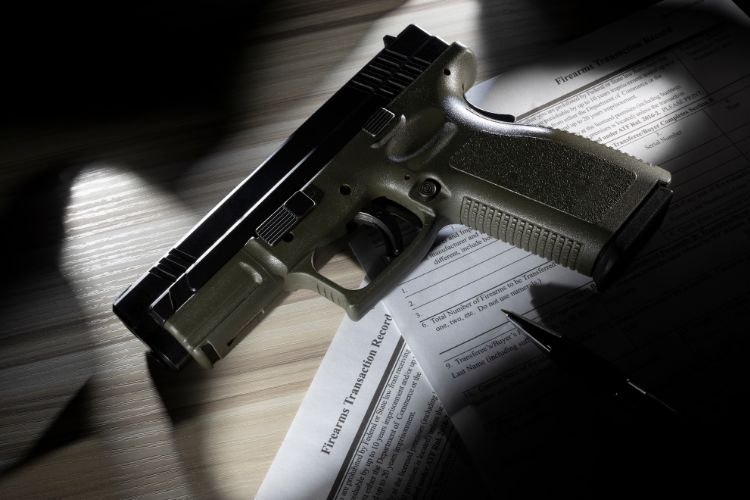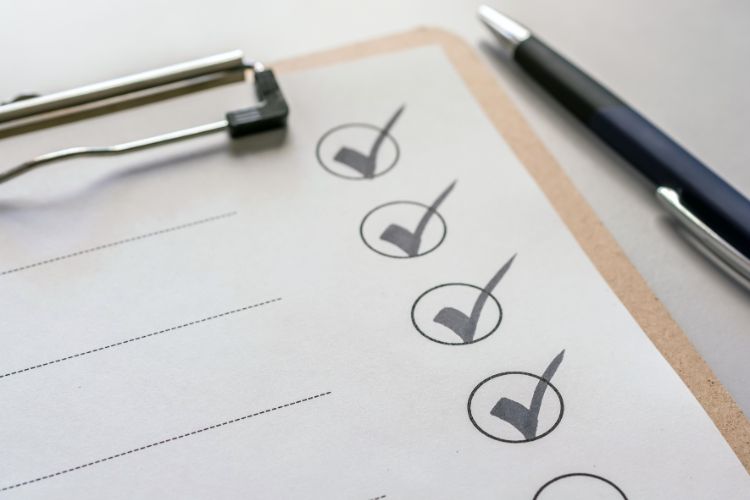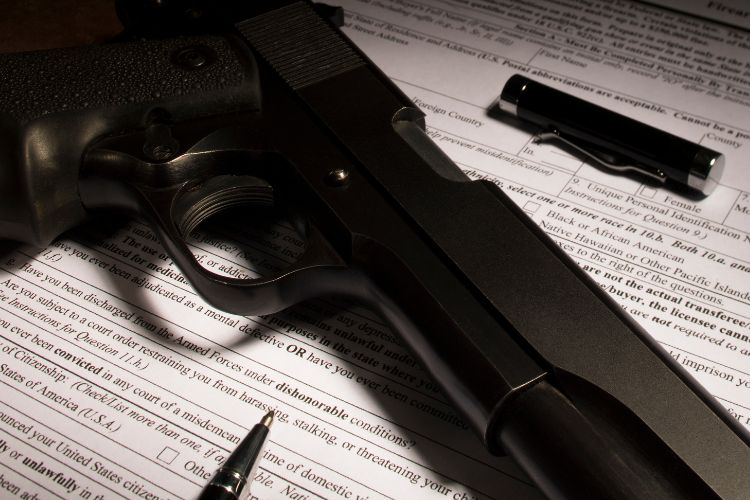What Is a Gun Background Check?
A gun background check refers to the process of evaluating an individual’s eligibility to purchase, possess, or transfer firearms. This process involves scrutinizing an individual’s criminal history, mental health records, and other relevant information to determine whether they meet the legal requirements for firearm ownership. A background check aims to prevent firearms from falling into the hands of individuals who are legally prohibited from owning them, such as convicted felons, individuals with a history of domestic violence, those with certain mental health conditions, and individuals subject to restraining orders.
Gun background checks play a critical role in promoting public safety by reducing the likelihood of firearms ending up in the hands of individuals who might pose a risk to themselves or others. These checks are a key component of responsible gun ownership regulations, helping to prevent potential misuse of firearms for criminal activities, acts of violence, and self-harm. By evaluating an individual’s history and qualifications, background checks help to create a balance between Second Amendment rights and public safety concerns, contributing to a safer and more secure society.
Through comprehensive background checks, law enforcement and regulatory authorities can identify individuals who are legally prohibited from owning firearms and prevent potentially dangerous situations from arising. Furthermore, background checks are integral in addressing issues such as domestic violence and mental health concerns, ensuring that individuals who may pose a heightened risk are unable to access firearms. Let’s find out what does a gun background check show with this guide.

Laws Regulating Gun Background Checks
Gun background checks are guided by a combination of federal laws and regulations, as well as state-level variations that can introduce additional requirements and restrictions. This section will provide an overview of the legal framework that governs gun background checks:
Federal Laws and Regulations
Brady Handgun Violence Prevention Act
Enacted in 1993, the Brady Act requires federal firearms licensees (FFLs) to conduct background checks on potential firearm purchasers. This act established the National Instant Criminal Background Check System (NICS), which is administered by the Federal Bureau of Investigation (FBI). NICS provides FFLs with immediate access to important records to determine if a buyer is prohibited from owning firearms.
National Instant Criminal Background Check System (NICS)
NICS is a centralized database that contains information on individuals who are disqualified from purchasing firearms. When a prospective buyer attempts to purchase a firearm from an FFL, the dealer initiates a background check through NICS. The system checks criminal history records, mental health records, and other relevant databases to determine the buyer’s eligibility. NICS responses can be instant, delayed, or denied based on the information retrieved.
State-Level Variations
Additional Requirements and Regulations
While federal law sets a baseline for gun background checks, individual states have the authority to enact stricter regulations. Some states require additional checks beyond federal requirements, such as waiting periods, mandatory firearm safety courses, or even specific licenses for certain types of firearms.
Some stricter state laws are:
- California: Requires background checks for all firearm transfers, including private sales and transfers between family members.
- New York: Mandates a waiting period for firearm purchases to allow for thorough background checks.
- Connecticut: Implements an “assault weapons” ban and requires individuals to obtain an eligibility certificate for certain firearms.
- Massachusetts: Enforces comprehensive background checks and license requirements for all firearm owners.
State-level variations reflect the diversity of approaches taken to balance individual gun rights with the responsibility of preventing firearm access to those who might pose a risk to public safety. It’s important to note that while federal law provides a baseline, states can go beyond these requirements to address their unique circumstances and concerns.

What’s Included in a Gun Background Check
A gun background check involves a thorough assessment of various aspects of an individual’s history to determine their eligibility for firearm ownership. The following sections outline what does a gun background check show:
Criminal History Check
Felony Convictions
A critical aspect of a gun background check is the evaluation of an individual’s criminal history for any felony convictions. Convictions for serious crimes such as murder, robbery, and drug trafficking generally result in an individual being permanently prohibited from purchasing firearms due to the potential risks associated with their past behavior.
Misdemeanor Convictions (Domestic Violence, etc.)
Certain misdemeanor convictions, particularly those related to domestic violence, can also result in firearm ownership restrictions. The inclusion of domestic violence misdemeanors in background checks is crucial to prevent individuals with a history of violent behavior from accessing firearms, as they could pose a threat to their intimate partners or family members.
Mental Health Records
History of Mental Illness or Institutionalization
Background checks include a review of an individual’s mental health history. Individuals who have been involuntarily committed to a mental institution or have been deemed mentally incompetent by a court are generally prohibited from owning firearms. This provision aims to prevent individuals with severe mental illnesses from accessing weapons that could potentially be used to harm themselves or others.
Involuntary Commitment
In cases where an individual has been involuntarily committed to a mental health facility due to concerns about their mental state, this information is often flagged in background checks. This helps ensure that those with a history of mental health crises receive appropriate treatment and do not have access to firearms during potentially unstable periods.
Restraining Orders
Issued due to Domestic Violence
Background checks consider whether an individual is subject to a restraining order or protection order due to domestic violence incidents. These orders are issued by courts to protect victims from potential harm and may result in firearm possession restrictions for the individual subject to the order.
Issued due to Stalking or Harassment
Restraining orders related to stalking or harassment are also taken into account during background checks. These orders aim to safeguard potential victims and prevent individuals with a history of stalking or harassment from obtaining firearms that could be used to escalate their behavior.
Substance Abuse
Prior Drug or Alcohol-Related Convictions
Some states include drug or alcohol-related convictions in their background checks, particularly if these convictions indicate a pattern of substance abuse. These provisions help prevent individuals who may have impaired judgment due to substance abuse from owning firearms.
Impact on Eligibility
Certain drug-related convictions can impact an individual’s eligibility for firearm ownership, especially if the conviction involves illegal drug possession or distribution. This criterion reflects concerns about the potential for individuals engaged in illegal activities to use firearms for criminal purposes.
Citizenship and Immigration Status
Verification of Legal Status
Background checks may involve verifying an individual’s legal status to determine whether they are eligible to own firearms. Non-citizens who are undocumented or have certain immigration statuses may be prohibited from owning firearms.
Impact on Non-Citizens
Non-citizens, including those with legal immigration status, are subject to specific regulations regarding firearm ownership. These regulations can vary depending on federal and state laws, and they take into account factors such as visa type, duration of stay, and criminal history.

Process of Conducting a Gun Background Check
The process of conducting a gun background check involves several steps to ensure that individuals purchasing firearms are eligible and do not pose a risk to public safety. This section provides insight into how this process unfolds:
Firearm Dealer Responsibilities
Initiating the Background Check
When an individual seeks to purchase a firearm from a licensed firearm dealer, the dealer is responsible for initiating the background check process. This involves collecting the necessary information from the buyer and submitting it to the National Instant Criminal Background Check System (NICS).
Communicating with NICS
Licensed firearm dealers communicate with NICS to perform the background check. NICS, operated by the Federal Bureau of Investigation (FBI), accesses various databases to determine the buyer’s eligibility. The dealer submits information such as the buyer’s name, date of birth, and other identifying details to initiate the check.
National Instant Criminal Background Check System (NICS)
Overview of NICS Operation
NICS is a comprehensive database that contains criminal history, mental health records, restraining orders, and other pertinent information that can impact firearm eligibility. It instantly processes the information provided by the dealer to determine whether the buyer is eligible to proceed with the purchase.
Instant vs. Delayed Responses
After the background check is initiated, NICS provides one of three possible responses: “proceed,” “denied,” or “delayed.”
- A “proceed” response means that the buyer is cleared for the purchase.
- A “denied” response indicates that the buyer is prohibited from purchasing the firearm due to disqualifying factors.
- A “delayed” response requires further investigation before a decision is made, often within a specified timeframe.
Waiting Periods
Explanation of Waiting Periods in Certain States
Some states impose waiting periods between the initiation of the background check and the actual purchase of the firearm. During this waiting period, the buyer must wait a specific number of days before taking possession of the firearm. The duration of waiting periods varies by state, with some states having no waiting periods at all.
Rationale Behind Waiting Periods
Waiting periods serve multiple purposes. They provide additional time for thorough background checks and investigations, reducing the risk of impulsive firearm acquisitions. Waiting periods also offer a window for authorities to identify any potential issues that may have been missed during the initial check. Additionally, waiting periods can be a mechanism to prevent acts of violence that may be committed in the heat of the moment.
Resources:
- Second Amendment
- Firearms Checks (NICS) — FBI
- 2020-2021 NICS Operations Report
- Brady Act 1993
- Firearms Q&As | Bureau of Alcohol, Tobacco, Firearms and Explosives
- Firearms Trace Data – 2021 | Bureau of Alcohol, Tobacco, Firearms and Explosives
- National Instant Criminal Background Check System (NICS) | Bureau of Alcohol, Tobacco, Firearms and Explosives
- Firearms Transaction Record


